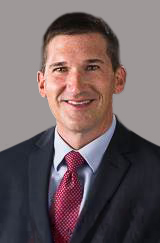What does it mean to have minimally invasive surgery? Understanding the risks and rewards.
| Healthy You | Resources

Smaller incisions make this surgery an appealing option for many people.
Imagine that an incision or cut about the size of a dime could be used to perform a surgery. With the help of a robotic device, a surgery team can do many delicate surgeries through a smaller opening.
It isn’t possible to perform every surgery like this. Common procedures include those for cancer surgery, spinal surgery and general surgery. Your doctor will let you know if you’re a good fit for it. Or what option may be best for you.
How does it work?
Laparoscopic surgery is an operation that is done with a small cut, usually through the abdomen or pelvis. A laparoscope is a tool with a small, flexible tube attached to a light and a lens for viewing.
During laparoscopic surgery, your care team will do the operation with a camera and tools that are connected to robotic arms. The surgeons control the arms by looking at the 3D camera views of the operating area.
The tiny arms on the robot allow them to access areas that would be tough to reach otherwise.
“Robotic surgery offers surgeons the ability to use robotic instruments that are even more precise than the human hand in a space that would usually require a very large incision,” said Josh Schulte, MD, a general surgeon at PeaceHealth in Sedro-Woolley, Washington.
What are the benefits of minimally invasive surgery?
Minimally invasive surgery is still a surgery, so you’ll have a bit of a recovery period. Compared to traditional surgery, however, its smaller incisions often mean:
- Quicker recovery
- Less pain
- Less scarring
Getting back to everyday life sooner might also be possible when your provider says it's okay.
Open surgery typically has a bigger cut for the opening and longer recovery after the operation.
In contrast, Dr. Schulte says, you may not need to stay in the hospital to have a minimally invasive procedure done. “The advancing technology is allowing surgeries that used to require prolonged hospitalization to be performed as an outpatient or brief stay in the hospital.” said Dr. Schulte.
What surgeries are suitable?
At PeaceHealth, many surgeries can be done using robotic assisted systems. Some options that are available include:
- Cancer surgery: Procedures for cancers such as colorectal, lung, cervical, prostate, pancreatic, and head and neck.
- Gynecologic and urogynecologic (pelvic floor) surgery: Procedures for hysterectomies and uterine fibroids, ovarian cysts, urinary incontinence and pelvic prolapse.
- Spine surgery: Surgeries like spinal fusion for neck and back conditions.
- General surgery: Surgeries including those for hernia, liver disease and gastroesophageal reflux like GERD.
- Head and neck surgery: Procedures for sinus, thyroid and parathyroid, larynx (voice box) and tonsils.
If you have an upcoming surgery, talk with your doctor to see if there is a minimally invasive option.






